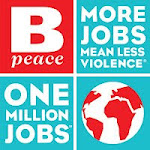 I started working on this post weeks ago and had a different opening focused on gun violence in the U.S. Then this happened: a Honduran soccer player who played a couple years ago for my favorite team, Glasgow Rangers, was shot dead on his way into a mall in La Ceiba to do some Christmas shopping.
I started working on this post weeks ago and had a different opening focused on gun violence in the U.S. Then this happened: a Honduran soccer player who played a couple years ago for my favorite team, Glasgow Rangers, was shot dead on his way into a mall in La Ceiba to do some Christmas shopping.
It’s not clear whether or not the murder was premeditated but Arnold Peralta had stood up to the drug gangs that currently rule Honduras before, tweeting, “Our country is facing difficult times with so many criminals killing so much, as though killing is fashionable! These sorts of people don’t deserve to be alive.” 
(Honduras has one of the highest murder rates per capita in the world. In 2012, with a rate of 90.4 intentional homicides per 100,000 people, it was at the top of the list of 218 countries.)
Soccer itself comes with its share of violent behavior but rarely does this involve murder. More often, the beautiful game can be an outlet for the anger, fury, angst, and frustration that can show up in life and, for whatever reason, seems to especially in young men. A few years ago, a Rangers manager commented that if it hadn’t been for the team’s 140-year-old rivalry with crosstown rivals Celtic in the 1970’s and 1980’s that the city would have fared far worse in the violence wracking Glasgow at the time. The exercise of going to the game and cheering, singing, and sometimes, yes, bemoaning your favorite team’s exploits on the field, provided a release valve and tamped down the violence in the streets. There were still a lot of brawls but there wasn’t a war.
 The Rangers Charity Foundation, despite some massive financial turmoil over the past few years in the parent club, has stuck with their partnership with Unicef which runs Soccer Aid, a program to promote sports the world over. So that’s why and who I’m giving to today. RIP Arnold Peralta.
The Rangers Charity Foundation, despite some massive financial turmoil over the past few years in the parent club, has stuck with their partnership with Unicef which runs Soccer Aid, a program to promote sports the world over. So that’s why and who I’m giving to today. RIP Arnold Peralta.  Thanks for your contribution to the beautiful game and for your stand against the violence.
Thanks for your contribution to the beautiful game and for your stand against the violence.
Here’s Peralta doing what he loved most:
Thanks, Mr. Peralta, for your fighting spirit both on and off the field.
Thanks for stopping by,
Heather McC



